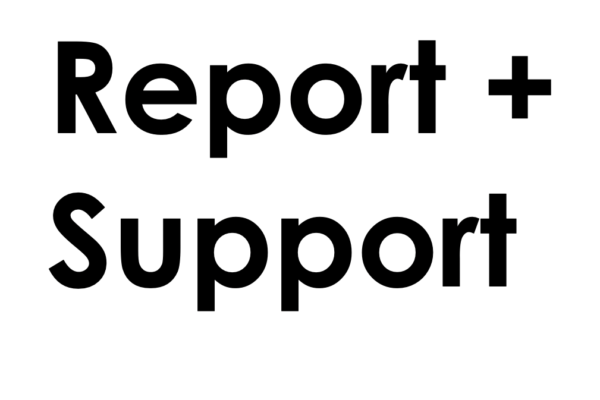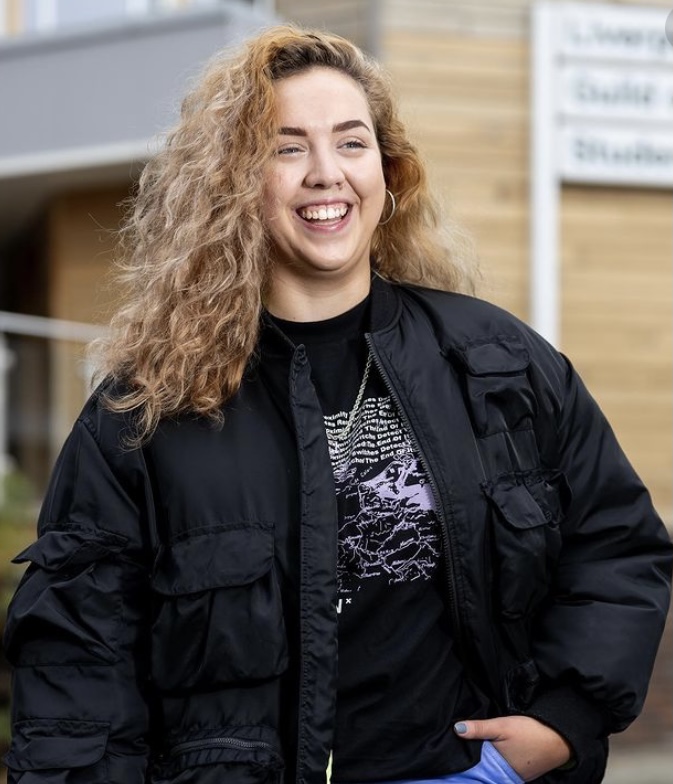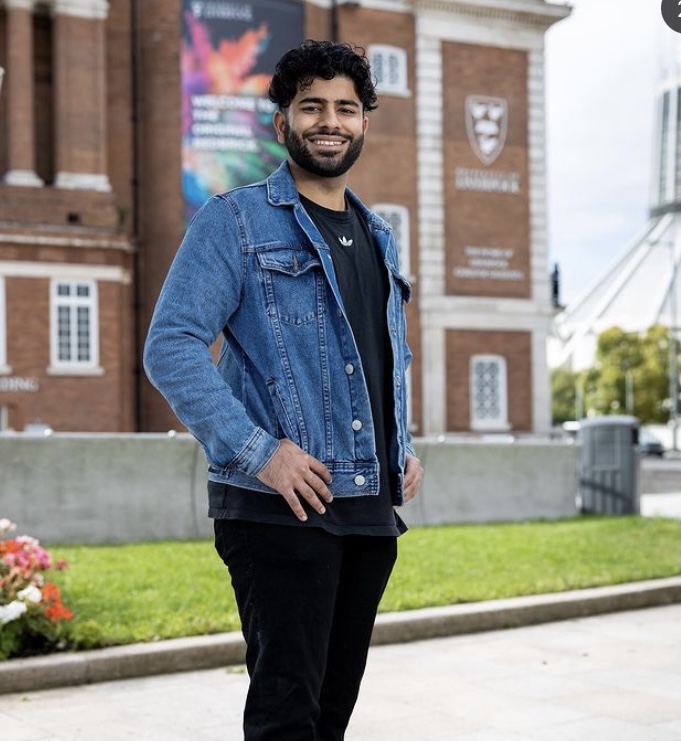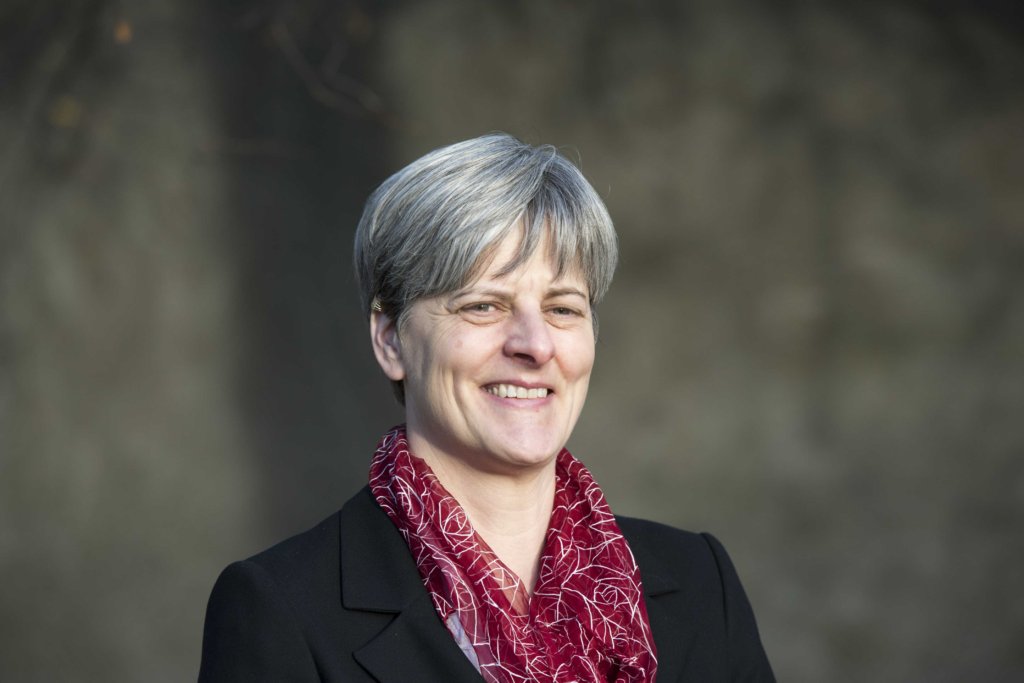6th November 2023
Listen
Listen

Following the October 2019 Equality and Human Rights Commission (EHRC), report Tackling Racial Harassment: Universities Challenged, the community of higher institutions faced some hard truths. Racial harassment was underreported, the support in place appeared to be inadequate, and to put it simply enough wasn’t being done.
Following the publication of this report the University of Liverpool has announced their new partnership with The Anthony Walker Foundation, as well as the unveiling of their new Report + Support Scheme, worked with in collaboration with the Student Officer team at the Liverpool Guild of Students.
The Report + Support scheme was created by the University of Liverpool in collaboration with the Guild of Students, in order to create a more equitable and welcoming campus. As the EHRC report highlighted, many cases of racial harassment often go unreported, and therefore unchallenged. Report + Support aims to provide a solution to this problem.
Report + Support has been designed to encourage both staff and to reports any incidents of discrimination, misconduct, hate crime, harassment and assault.
The Report + Support service can be accessed via the Student Intranet portal. Incidents can be reported anonymously or by using your contact details if you wish.
The service also provides essential support guides, answering vital questions regarding bullying and harassment, domestic abuse, honour based abuse and forced marriage, hate crime, sexual assault and rape and sexual harassment and stalking.
Alongside the new Report + Support scheme, the University has also announced its new corporate partnership with The Anthony Walker Foundation.
The Anthony Walker Foundation was founded in 2006 after the racially motivated killing of Anthony Walker in 2005. The foundation aims to promote racial equality via education as well as supporting communities and individuals which have sadly fallen victim to hate crime. Alongside this, the foundation responds to a multitude of hate crime cases through their victim support services, offering emotional and practical support, as well as providing key and vital information.
You can find more information about The Anthony Walker Foundation here.
“Last year, the Equality and Human Rights Commission (EHRC) released a report entitled ‘Tackling racial harassment: Universities challenged’. This report laid bare some startling truths about the higher education sector. In particular, that racial harassment was underreported, reporting mechanisms were ineffectual, and our sector was not doing enough to stamp out discrimination wherever it may manifest.
The EHRC report formed the catalyst for an examination into the University’s work in building a more equitable and welcoming campus. In response to the EHRC report a working group was set up, led by Professor Fiona Beveridge, with an aim of developing initiatives to empower all students and staff to report harassment, and to understand how we can ensure students and staff feel confident complaints will be dealt with effectively.
Over the last year this group also looked at the role students and staff should play in building a more equitable culture on campus and the visibility of the University’s commitment to anti-racist practice to staff, students, and the wider community. This work resulted in the publication of the ‘Tackling Racial Harassment: Universities Challenged – A University of Liverpool Response’ report, and, as part of this work, the University has entered into a new partnership with The Anthony Walker Foundation to support training, reporting and community engagement work.
The Anthony Walker Foundation was established in 2005 after the racially motivated murder of Anthony in Huyton, just outside of Liverpool. Anthony’s family and friends did not want his murder to be another statistic and wanted his name to live on with a positive, lasting legacy.
The Anthony Walker Foundation works to tackle racism, hate crime and discrimination by providing educational opportunities, victim support services and by promoting equity and inclusion for all.
The partnership with The Anthony Walker Foundation will help the University in its EHRC related work in a number of ways including:
• Providing vital expertise for the University’s training and public engagement work
• Helping to develop a more holistic picture of hate crime in Liverpool through sharing intelligence more effectively
• Providing insight on how policy development at the University can comprehensively embed race equity”

“One of my key priorities this year is ensuring students have access to culturally competent services and activities. As part of this, MindsofPOC delivered a workshop for BPOC students on mental health. I am also working with the University to identify and prioritise training. With this intention in mind, I welcomed the University’s partnership with the Anthony Walker Foundation (AWF) who will help take forward parts of this work. Wedging my way into discussions, I met with the University a number of times to outline how this should play out. Through a “train-the-trainer model”, I hope that their expertise and knowledge will be shared across the institution. I also suggested the importance of future development goals and compulsory and yearly training for all staff to complete.
It is important that if students face discrimination or harassment, they know how to quickly access support and assistance. Too often, students feel that their complaints won’t be taken seriously. Others are unsure where to make reports, or what will happen if they report misconduct and a number are concerned about staff accountability. To help address this, I am working with the University to develop new guidance, outlining examples of types of misconduct, and potential sanctions. I also fed back to the new report and support tool to ensure it was as inclusive and accessible as possible. I hope that this will make clear the wide range of misconduct the University can take action on, that this partnership will hold them accountable and that these steps can help build confidence that these matters are being taken seriously.
Equality, diversity and inclusion is a key issue for the Guild. Unknown to many, the Guild is a Hate Crime reporting centre and our Advice Team can support students who have faced harassment. The Officers are also prioritising related campaigns, and I will continue my work to make the campus a more inclusive environment.”

“As one of the few Presidents of Colour in the Guild’s 100+ year history, racial equality for students is one of my key priorities for this year. At the very beginning of my Presidency, in 2019, I joined the Equality Human Right’s Commission (EHRC) Working Group, bringing the student voice to the ears of the University’s leaders. I was joined alongside Vice President Hannah Nguyen (2018-2020) and later Deputy President Imogen de Castro Gray (2020-2021), in which we collectively fed into the making of the report.
As a student representative, I was able to feed in my experiences of studying at the University, reflecting on my British Pakistani heritage. I also talked to various students and societies about their experiences with studying at the University. What was apparent from speaking to students was that they did not feel that their curriculums were diverse, nor were the cohort of students and staff at the University as ethnically diverse as they should be. I was able to feed comments such as this back to the group, so it could be included into the final report of the document.
Building on this, a lot of students commented on diversifying or decolonising the curriculum. Decolonising the Curriculum is essentially making sure that the content of our studies more accurately reflects the world, and the breadth of knowledge that exists. It means ensuring that the spaces of learning are accessible to all people regardless of race. (Have a read of this link for a more in-depth explanation of what Decolonising the Curriculum is) As an example, when I was writing my History dissertation on Colonial India, I could only access sources and reading lists written by White Men. Very few sources used were written from either Indian, Pakistani, Sri Lanken or Bangladeshi heritage, creating a narrow view of the topic. I am now focused on this aspect of racial equality and have met with the leaders of the School of Humanities and Social Science as a result. This group discusses good practice in changing the University’s curriculum so that it is free from colonial legacies. This work should lead to a more diverse range of studies, a diverse cohort of students and a step into tackling awarding gaps. In this group I can engage with students studying in this discipline and bring forward vital feedback that the University needs to hear. “

“We all can, and must, do more, to eradicate racism and discrimination whether it manifests in our communities, in our University, or in society at large.
These are important initial steps which enable us to better tackle race discrimination but we are not complacent and know that we, as an institution, need to do more.
We are committed to the work we need to do to address inequalities and, as part of this work, we will be raising awareness amongst our students and staff of both the new ‘Report + Support’ system and our new partnership with The Anthony Walker Foundation.
These initial steps will help us on our journey to become the more inclusive University that we aspire to be.”
In addition to this article, LGSM have been lucky enough to take part in an interview with Professor Fiona Beveridge Executive Pro-Vice-Chancellor for Humanities and Social Sciences, you can find this interview here.
You can also find more information regarding Report + Support here
Feature Image Credit; Author